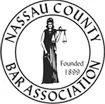How to Stop Wage Garnishment in NY

Wage garnishment, also called income execution, is a court order that forces an employer to withhold a portion of an employee’s wages and send it directly to a creditor. For most types of debt, garnishment requires a creditor to first obtain a court judgment declaring that the debtor owes the creditor money. Once a garnishment is in place, it can be difficult to remove. Read on for options to stop wage garnishment in New York, and call an experienced Poughkeepsie debt relief and bankruptcy lawyer to explore your options for relief.
Debt Negotiation
The best way to avoid wage garnishment is to stop it before it starts. If you are behind on your payments to a creditor, it can’t hurt to reach out and try to work out a payment plan or other manner of repaying your debt. Creditors prefer voluntary payments, even if they receive a smaller amount every month or a smaller total repayment. Going through a court proceeding to collect debt or garnish wages is time-consuming and costs money, and it increases the risk that the debtor will file for bankruptcy down the line, leaving the creditor with nothing. Talk to a debt relief attorney and consider your options for debt negotiation, including a lower lump-sum payment, an extension on owed payments, or a reduced monthly obligation.
Negotiating a debt becomes more difficult once a garnishment is in place. At that point, you will need to convince the creditor that they will get a better deal if you pay voluntarily–meaning you will likely need to show your willingness and ability to pay more per month than the amount of your wages being garnished. Still, creditors may be open to a payment plan even after obtaining wage garnishment if it increases their monthly gain, reduces their overall risk, or if you get an especially friendly representative.
Exempt Income
Not all wages are subject to garnishment. Certain classes of income are exempt. If you can demonstrate to a court that the creditor is seeking to obtain or is already collecting garnishment of exempt income, you might be able to reduce or eliminate your wage garnishment.
Outside of child support, spousal maintenance, and back taxes, wage garnishment is subject to strict limitations. A creditor can garnish the lesser of either 10% of your gross wages or 25% of your “disposable income,” to the extent that amount exceeds 30 times the minimum wage. If your weekly disposable income is less than 30 times the minimum wage (i.e., the minimum wage times 30 hours for a workweek), then your wages cannot be garnished at all. Disposable income means net wages after legally required deductions such as taxes and social security are taken out. Garnishment pertaining to owed child support, spousal maintenance, student loans, and back taxes are subject to different limits.
Certain types of income are also exempt from collection. The money protected by New York law against debt collection includes Supplemental Security Income (SSI), unemployment benefits, workers’ compensation benefits, and other forms of income. If you are subject to garnishment that attaches exempt income, whether the garnishment is taking more than the cap, your income is too low to be subject to garnishment, or the garnishment is collecting exempt forms of income, you can petition the court to put a stop to the improper collection.
Filing for Bankruptcy
While bankruptcy is no one’s first choice for debt relief, it is a vital legal tool utilized by hundreds of thousands of indebted Americans every year. One of the principal and most immediate benefits of filing for consumer bankruptcy is the “automatic stay.”
When a debtor files for bankruptcy, whether they file under Chapter 7 or Chapter 13, the court issues an automatic stay. The stay puts a stop to any and all collection efforts being made by creditors, including foreclosure actions, debt collection lawsuits, and wage garnishment. If you are subject to wage garnishment and file for bankruptcy, the stay will put a stop to the garnishment either permanently (if the debt is covered and is discharged) or so long as you keep up with your Chapter 13 payments (if the debt is covered and you obtain a Chapter 13 repayment plan).
If the wage garnishment pertains to a debt that is not covered by your bankruptcy, the garnishment will still be stopped by the automatic stay. The creditor will need to petition the court to “lift the stay” as it pertains to their debt. With additional time and the burden of other, covered debts being reduced or lifted, the debtor may be able to get current with their payments and prevent the garnishment from being reinstated.
If you are struggling with debt in New York, contact the experienced and professional Hudson Valley bankruptcy lawyers at the Law Office of Taran M. Provost, PLLC for a free consultation on your case at 845-675-3243.



